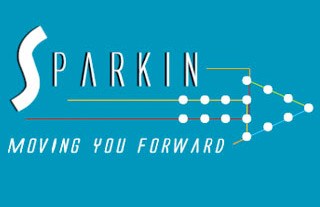Following The Money Often Reveals The True Story
Aspiring job seekers, don’t be dazzled by the scenery! Save yourself from a bad job move and get to the reality of what a business actually does sooner rather than later. Inspiring recruiters may tell you what an employer aspires to be, about the new this or the new that division they are going to build which is great. But, you need the reality of what the experience is now. So the questions that get you closer to the truth orient around where your future employer ‘actually makes’ the bulk of its cash from versus where it ‘wants’ to make money. #SmartCareerMoves
Integrated Thinking and Polymaths?
More than ever, the agency world values integrated thinking; It needs creative polymaths
Think Da Vinci, Gallileo and Jobs, all polymaths or, ‘someone who has great and varied learning over complex bodies of knowledge…who can also solve complex tasks’.
Great creative strategists do this. With experience and vision beyond silos – not quantitative or qualitative approaches, digital or analogue, science or the arts – they bring together disparate ideas in new and exciting ways.
As ‘knowledge’ becomes cheap and accessible to all at the click of a button, inventive synthesis will be key. This skill will propel careers and push us up the value chain. Some find it innately but we can all improve.
The attached links may reveal something about the person you are, could or need to be.
Enjoy!
Stuart
Articles and commentary that might be of interest…
- Hidden talents – are you a polymath?
- Six Extremely Unique and Purpose Driven Polymaths
- Creative people’s brains really do work differently
- Talking Product & Polymaths with boomtrain’s CTO & Co-Founder
- How Creative Polymaths are Influencing Luxury Brands
- Why High-Skilled Freelancers Are Leaving Corporate Life Behind
- Where are the polymaths hiding?
- PR is not enough: we must all become polymaths to thrive
- Why 21st-Century Economy Needs More Polymaths
- Future of Work and Multipotentialites
Being A Good Boss
People don’t quit their jobs, they quit their bosses. And usually when they cease to see a path for progression or growth for which a good boss is instrumental.
This edition of Narrate is about managing and being managed.
A great manager can make a huge difference to both your day-to-day experience as well as your long-term prospects, but a great manager is not automatic. Most managers lack training or formal guidance for the managerial role. Of course, a bad manager is awful.
“Nine times out of ten, when an employee says they’re leaving for more money, it’s simply not true. It’s just too uncomfortable to tell the truth.”
(Alison McMahon)
So how do we get better at this? Fortunately, there’s great material here. The attached links are aimed at making the task of managing a tad easier and being managed, a little more effective. If nothing else, a shared article might facilitate a conversation that needed to happen.
Enjoy!
Stuart
So What Makes a ‘trusted advisor?’
18 Executives Share Their Secrets To Being A Great Boss
5 Simple Ways To Be A Good Boss No Matter How Busy You Are
7 Leadership Style The Best Bosses Use
Want To Be A Good Boss? Start By Understanding Why You Want To Lead
Good Bosses Switch Between Two Leadership Styles
How To Be A Great Millennial Boss
14 Signs Your Employees Secretly Hate You
12 Things Not To Say Or Do Around Your Boss
Standout by Getting Your Employer Working For You Copy
Whilst working at your current agency you should consciously pursue experience, education and connections that enhance your distinctiveness as a business problem solver. You should do what you are paid to do (help optimize the agency of which you are part) but also remember that not also leveraging the agency to build your own value, is a wasted opportunity.
Don’t Regret What Was
It’s only once you cease to work for an agency that you appreciate the many things that provides, some obvious and some less so:
A job;A Team; Resources, (financial/creative); Access; Training; Experience; Exposure.
Your working in an agency can be great for the agency’s and its clients business. It should also be a positive step for your career growth.
The Connection between Great Work and Your Success
Does a happy client and grateful agency means you will have an optimized fast tracked career? Perhaps.
If you have are known for being an active team player, a proactive individual that helps to resolve client challenges and optimize opportunities, does this mean you will have a fast-tracked career. Perhaps
Is your reputation for effectiveness and are the career opportunities afforded you directly linked. Perhaps
Why a great contribution Doesn’t Always Mean That You Benefit
For instance. If the agency loves the way you keep one client happy they may well be reluctant to move you to other accounts. Or, put another way, an agency whose priorities and timeline that differ to yours may prioritize training, work, performance and metrics that do not fairly reconcile your contribution, strengths or priorities; Or, you deliver but others claim the credit.
Delivering Consistently Means (In the absence of conscious career management)
If you do deliver consistently and others notice, you should survive (but don’t always).
If you are noticed you might not necessarily be rewarded at all or proportionately or in the way you might want to be.
Delivering tangible metrics yet without a career advocate, throws the recognition and aligned progression you deserve in to question.
Putting Your Employer to Work for You – How?
Accept responsibility for your career progression.
Always have an idea how you want to grow next even if you don’t know what you want your next challenge to be.
Have your own ‘purpose’ and pursue it, even if you don’t believe in the purpose of your employer, or its clients.
Ideally, anticipate what your next career step will be. The clearer you are about this the better able you will be to start harnessing the experience, knowledge and connections you will need to make you a shoe-in for the next role.
Attaining Trusted Advisor Status
Each year, unfortunately around Thanksgiving and as the end of the financial year approaches, many agencies prune their ranks. One way to bolster your job security? Pursue trusted advisor status. But what does it take to attain it?
IPA Effective work? Cannes awarded creativity? Making your client a success story? Some argue that you give the client what they want. Or is it what they don’t know they want? Either way, they have to trust you. They need to believe that what you recommend has their best interests at heart and not simply your agency’s bottom line. Who is best able to deliver on this promise?
The brilliant communicators? The great listeners? The connectors of the disparate? Of course, all the above but as with a great meal, great ingredients are not enough. How and in what order you combine them is key.
The attached links provide some expert views on how to bolster your position at this vulnerable time of the year.
Enjoy!
Stuart
So What Makes a ‘trusted advisor?’
- Trusted Advisor Marketing: Why You’re Asking the Wrong Questions?
- Scaling Trust: Marketing on a New Key
- Selling Strategies: How to Become a Trusted Advisor to the C Suite
- Trusted authority or Trusted Advisor – What and Why?
- 9 Traits of a Trusted Advisor
- Virtues of a Trusted Advisor
- Five Tips For Creating Relationships That Drive Sales
Planning Your Future
Two questions I’m frequently asked by planners: ‘What makes me most marketable?’ and, ‘What are my career options?’
The good news for planners is that the career options are extensive. We’ve seen planners (good ones) go to branding agencies, PR shops, media players, digital homes, design spaces, innovation boutiques, research houses, client-side, start-ups, consultancies of all hues, many have freelanced and others have set up their own businesses in unrelated areas.
And what makes planners most marketable? Perhaps the best insights come from your peers that took the plunge.
- For me today the virtue most needed for folks wanting to change the fortunes of brands is fearlessness’ Michael Fanuele, Chief Creative Officer, General Mills
- A tendency to listen more than to speak’ –Katie Dreke, Global Brand Director/Advanced Concepts, Nike
- ‘What matters most is intellectual curiosity and an aptitude for change’–Ivan Wicksteed, CMO, Old Navy
In my experience strategic planners in most demand have a business mindset with a results focus; an ability to communicate and gain confidence through understanding client or colleague motivations; and an appreciation of the role that technology plays in building brands.
Looking forward to taking with you about your career progression.
Stuart
Articles and commentary that might be of interest…
- Do you think FAST or think SLOW? Here’s why Brand Leaders need do both
- The Thinkers50 Ranking 2013 (and bios)
- Forward Thinkers: What You Can Learn From Nintendo’s Weird and Wonderful 125 Years
- Getting Outside the Box: The 5 Behaviors of Successful Leaders
- Why Your Best Performers Usually Make the Worst Leaders
- Heads-Up Leadership … leading a customer revolution
- Great Entrepreneurs Are Creative Thinkers
- From Basement to $15M: One Woman’s Journey To The Top
Contact me for a list of resources –Best Visa, Passport and Work Permit Websites









